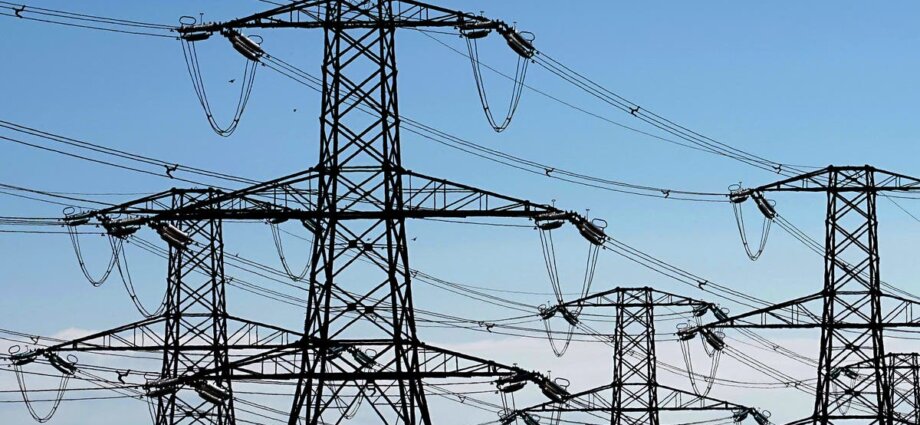New energy infrastructure locations will be outlined in a strategic plan to help speed up “the transition to clean power” and provide long-term certainty to investors, the Government said.
Energy ministers in the Scottish, Welsh and UK governments have asked the National Grid operator to produce the first-ever strategic spatial energy plan (SSEP) covering new projects across the country’s land and sea up to 2050.
The National Energy System Operator (NESO) will look at how to best spread new energy projects while taking other sectors into account, such as transport and water, as well as the environment, the Department for Energy Security and Net Zero (DESNZ) said.
The NESO will then present to ministers several options for how the energy system could look in the future, with the chosen option taken forward to public consultation alongside detailed environmental assessments.
The DESNZ said the first iteration of the SSEP will be published in 2026, focusing on electricity generation and storage, including hydrogen assets, from offshore wind farms to pumped storage hydro.
The department said the plan will help to cut grid connection waiting times, speed up project delivery, reduce overall system costs, create more jobs, and give investors confidence in where to build and when.
This could then, in turn, bring down bills for consumers, it added.
Energy minister Michael Shanks said: “To help drive growth and investment in our clean energy future, we need to provide investors with the long-term certainty and stability that they have been crying out for.
“That’s why we need a more strategic approach to our energy system, ensuring we can quickly scale up investment in the right infrastructure where we need it, to keep costs down and speed up our transition to clean power.
“Delivering the country’s first ever spatial plan will be a major milestone for our new public energy body.”
Rebecca Evans, Welsh Government cabinet secretary for economy, energy and planning, said: “We welcome this strategic approach to the energy system, which should reduce overall costs and bring certainty to communities.
“In Wales we have been developing plans to meet our energy needs at the local, regional and national level for some years and look forward to working collaboratively with the NESO and others to feed into these UK-wide plans.
“Getting this right will help ensure we deliver the best possible outcomes for our communities and our industries through the considered development of the clean energy they will need to power them.”
Gillian Martin, the Scottish Government’s acting cabinet secretary for net zero and energy, said: “Key to the plan’s success will be ensuring that investor confidence is maintained throughout.
“It is also vital that it takes into account the nature of devolved policies and ambitions, delivers real benefits for the people and communities of Scotland and supports our ongoing efforts for a just transition.”
Kayte O’Neill, the NESO’s chief operating officer, said: “We are delighted to receive this formal commission as NESO to develop this plan and bring together our expertise and that of our partners to develop this critical blueprint for Great Britain’s energy system of the future.
“By setting out pathway options, engaging across government, the regulator, wider industry, interested parties and with communities, as well as exploring the needs at a more zonal and regional level, we can then identify where and what type of electricity and storage technologies we need to meet our future demand and decarbonisation ambitions.”
Alistair Phillips-Davies, chief executive of energy firm SSE, said: “As one of the largest investors in clean power in the UK we are very supportive of the strategic spatial energy plan.
“Having long-term stability through spatial plans and policy mechanisms will be critical to unlocking billions of pounds of investment across the country, supporting good jobs and building a homegrown energy system that is cleaner, more affordable and secure.”
Jonathan Brearley, chief executive of Ofgem, said the plan “will be a real gamechanger in unlocking growth and investment, accelerating new infrastructure build, and speeding up innovation and technology”.
“It will be a big stepping stone in delivering Government’s mission to provide clean power by 2030 and accelerate the transition to net zero.”










